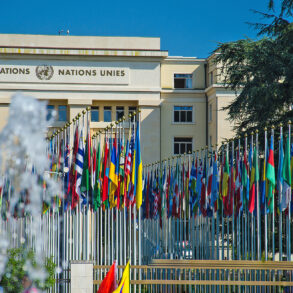When it comes to seeing a psychologist, many Muslims find it difficult. Some do not feel understood by psychologists, others are put off by prejudices. We have had to listen to these prejudices for decades: “You are only depressed because you have a weak faith” or “Allah does not give you a burden you cannot bear, so you must not feel overburdened.”
Of course, it is easier to go to an Imam. He himself is Muslim, he understands you and there is no prejudice. Many Muslims seek psychological counselling from an imam for their depression, anxiety disorders, family and marital problems, grief and much more. But can the imam really help?
In 2003, a study was conducted in the USA to find out how well imams are trained to meet the demands of psychological counselling. It found that only 12 per cent of imams have a degree in psychology or psychotherapy. A third said they had non-academic training in Islamic psychological counselling.
Another study in 2010 showed that only 25 per cent of imams in the US have some kind of training in psychological counselling or psychotherapy.
In Germany, there are no studies on how many imams have psychological training, but the situation looks like the US.
In simple words, most imams are not trained to meet the demands of psychological counselling.
A few years ago, I was privileged to have a personal conversation with Dr Ingrid Mattson. She told me about her time in Pakistan when she trained refugees to do psychological counselling in the refugee camps. While talking about it, she said a phrase that got me thinking: “It doesn’t take much to help others.”
If it doesn’t take much to help others, what is needed?
If you look at the principles of psychological counselling, the “little” is empathy, validation, a safe space and freedom of judgement. In addition, one should have basic knowledge of (Islamic) psychology. Can imams without basic psychological training meet these requirements?
Freedom of judgement is a principle that is sometimes difficult to navigate. Islam provides values and we are required to condemn immorality. So where does freedom of judgement begin and where does it end?
Empathy can also be difficult at times. Let’s imagine that a woman goes to an imam and reports that her husband is violent. But the imam has known her husband for decades and knows him to be a kind man. How can he put his own opinion aside and have empathy for the woman?
Basic knowledge of psychology is the biggest barrier for many imams and Islamic psychology counsellors. There are different approaches in psychotherapy and psychological counselling, namely psychoanalysis, behavioural therapy, humanistic psychology therapy, NLP, positive psychology and many more. At first glance, all these approaches may seem useful and enriching. But at second glance, one recognises some problems and principles that clearly contradict Islam.
Dr Malik Badri, the father of Islamic psychology, called these problems and contradictory principles “lizard holes.” The term comes from a well-known hadith in which it was prophesied that a time would come when Muslims would blindly follow Christians and Jews, so that “even if they manage to enter a lizard hole, Muslims would blindly follow them.” (Sahih Muslim)
Imams and Islamic psychological counsellors therefore sometimes find it difficult to navigate the approaches of psychotherapy and psychological counselling.
At the same time, it is sometimes impossible to distinguish spiritual suffering from psychological suffering without basic training in Islamic psychology. This can be seen particularly well in the difficulty of distinguishing between whispers (Arabic: waswasah) and obsessive-compulsive disorders.
Unfortunately, therefore we see it more and more often that some Muslims have no place to turn for their problems. They neither want to go to a psychologist, nor can the imam help them.
Now we can lament and complain about the situation, or we can become active and change this situation ourselves.
The Prophet (peace and blessings be upon him) said: “Whoever alleviates the suffering of a believer from the sufferings of this world, Allah will relieve him from a difficulty of the difficulties of the hereafter. (…) Allah helps the servant as long as the servant helps his brother. Whoever follows a path to gain knowledge about it, Allah will thereby ease his way to Paradise.” (Sahih Muslim)
And this is exactly what more and more Muslims are doing. They are taking the responsibility to be trained in Islamic psychology, Islamic psychological counselling and pastoral care to fill the needs of the Muslim community.
Psychologists like Dr Malik Badri, Dr Aisha Utz, Dr G Hussein Rassool and Dr Homan Keshavarzi in particular have ensured that the professional field of Islamic psychologists and Islamic psychological counsellors is established. The textbooks are available, the courses on Islamic psychological counselling are available. Now it is our responsibility to bring this knowledge and expertise to Germany to help the community.
Are imams substitute psychologists? There is no doubt that imams take on an important role in dealing with psycho-social problems. Imams take on this role because they want to help the community – and they need some help themselves.
* About the author: Mirah Malaika is an Islamic scholar and aspiring muftija (female mufti) and has studied Islamic psychology, Islamic counselling/psychotherapy and Islamic pastoral care alongside her Islamic studies. She offers Islamic psychological counselling and trains Muslims in Islamic psychological counselling and the sciences of Islam.











